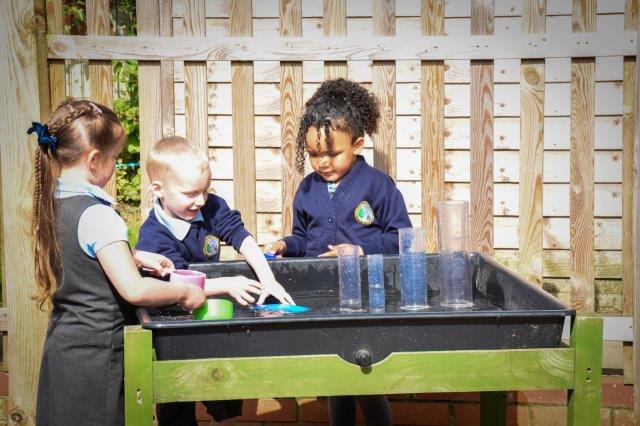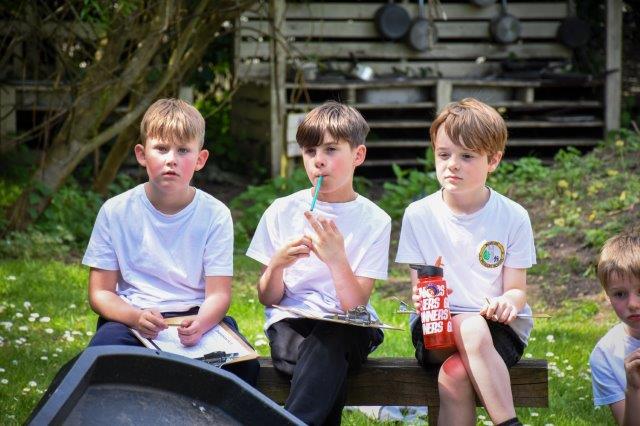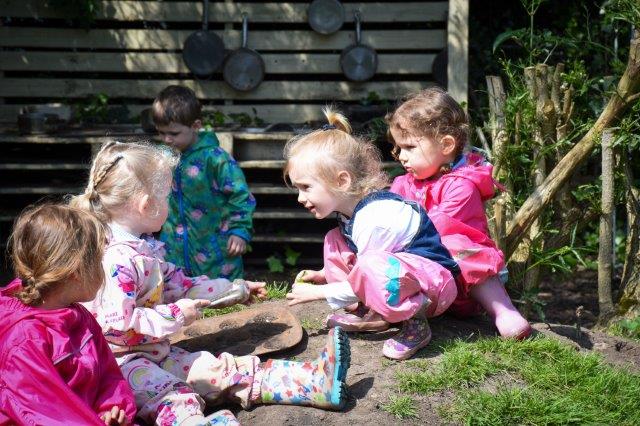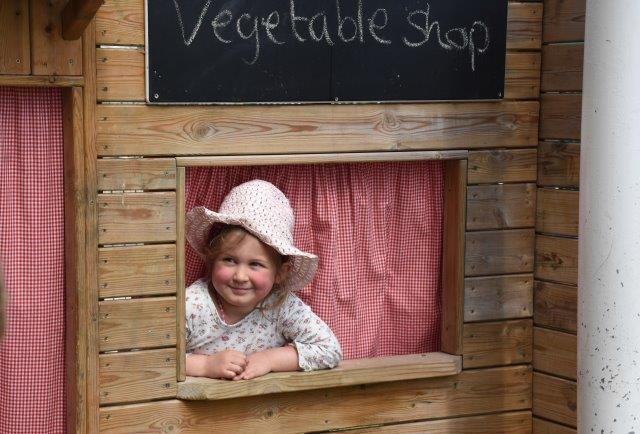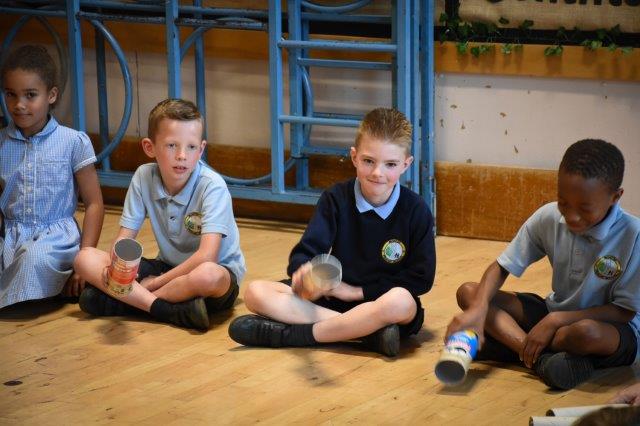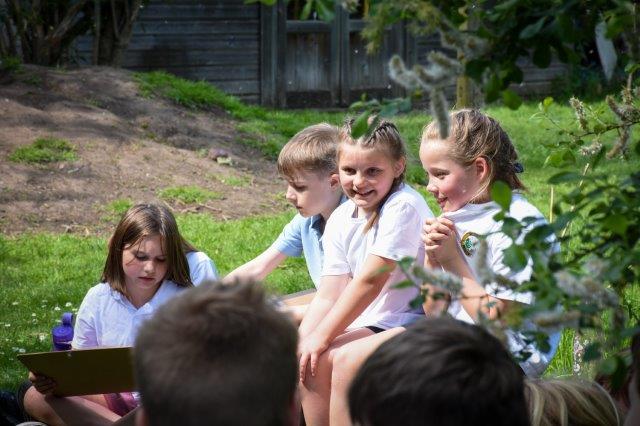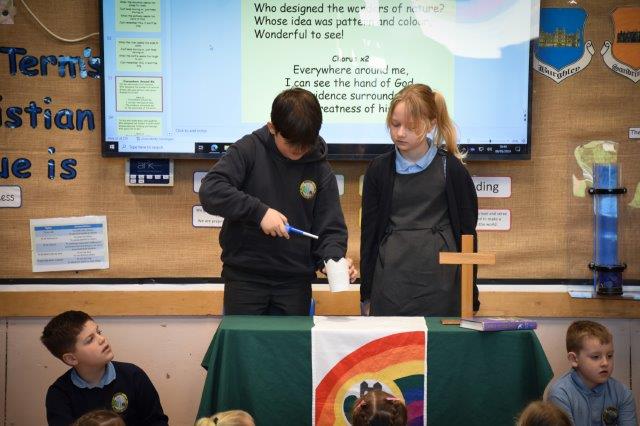SEN Offer - Frequently Asked Questions
1. What should I do if I think my child has special educational needs?
If you are concerned that your child may have SEN please contact their class teacher initially. If you would like to arrange a time to meet with the class teacher to discuss your concerns please telephone 01778 570389 to make an appointment. In addition you can speak to your child’s class teacher after school if this is convenient.
If you would like further information after this initial meeting please contact the school SENCO, Mrs Wilson via the office.
2. How will the school respond to my concern?
Following the initial meeting with your child’s class teacher a further longer meeting may be arranged to discuss your concerns and the school’s response in greater detail. Usually we would ask the SENCO, and class teacher to attend this meeting with parents, in addition teaching assistants may be invited to attend. We will also try to include your child’s views wherever possible.
During this meeting all involved will agree on next steps, this may include further assessment and/or observation, setting targets, involving other agencies and planning any support or intervention as appropriate.
3. How will the school decide if my child needs extra support?
We closely monitor and assess the progress of all children at Morton. Sometimes we find that a child does not make the progress we expect, when this happens we talk to parents and plan appropriate support. If parents have raised a concern about a child’s progress we plan further assessment and/or observation as required to identify the child’s needs. Whilst we informally gather this evidence (including the views of parents and pupils themselves) we target high quality teaching at the areas of weakness with the aim of accelerating progress.
4. What will the school do to support my child?
Once the child’s needs have been identified and discussed we use a four part cycle to support the pupil to make good progress. This cycle ensures that earlier decisions and actions are revisited, refined and reviewed with a growing understanding of the pupils needs.
These four part cycle consists of;
1
Assess – a clear analysis of the child’s needs, parental concerns and their response to interventions is recorded and reviewed regularly.
2
Plan – The teacher, the SENCO, and support staff should agree in consultation with the parent and the pupil the adjustments, interventions and support to be put in place, as well as the expected impact on progress, development or behaviour, along with a clear date for review.
3
Do – Interventions, additional support and/or different resources are put in place to support the child’s progress. This could involve working with the class teacher or a teaching assistant.
4
Review – The effectiveness of the support and interventions and their impact on the pupil’s progress are reviewed in line with the agreed date. This review involves the views of all staff that work with the child, parents and the child themselves.
For children with an Education Health Care Plan (EHC) their EHCs are reviewed annually in line with local authority guidance.
5. Who will support my child in school?
Children with SEND may be supported by teachers, teaching assistants, peers and staff from outside agencies.
6. What training and experience do staff have for the additional support my child needs?
Staff have a wide range of experience and qualifications. These include ELKLAN Early language, Talking Time speech and language intervention, paired reading, paired maths, Makaton, Team Teach (positive behaviour management), precision teaching, phonics support and interventions, an introduction to dyslexia, understanding autism & promoting social interaction, sensory integration difficulties, visual strategies to enhance access to the curriculum and autism & positively managing behaviour.
We identify our training needs and plan relevant training, observations and visits as required. Recently the whole staff took part in training about the Autism Spectrum and supporting those children with difficulties with working memory.
7. Who else might be involved in supporting my child?
We can access further support from outside agencies as appropriate. Recently these include Educational Psychologists, Paediatricians, School Nurse, Speech and Language Therapists (SALT), Working Together Team (WTT), physiotherapists, occupational therapists, Child and Adolescent Mental Health Services (CAMHS) and the Specialist Teacher Team (STT). The need for support from an outside agency will always be discussed with parents before we initiate any involvement.
8. What support will be there for my child's emotional and social well-being?
As a small school we are very proud of the support that there is available for your child's emotional and social well being. Our first strength is the children themselves and we often find that children who struggle in this area respond well to their peer group. Secondly, all of our staff are approachable and focused on supporting children in all areas of their wider life.
There is effective support in place to manage individuals and avoid exclusion, increase attendance and manage medical needs. If you require any support in these areas, please speak to the class teacher, or SENCO/Head of School.
9. How will my child be involved in the process and be able to contribute their views?
We try to include the child’s views as much as possible. We use discussion with children, questionnaires, discussion with parents, visual communication strategies e.g. pictoral answers and ICT to ascertains children’s views. All children have one page pupil profile that sums up their needs, this is reviewed annually with both the children themselves and staff.
10. How will the curriculum be matched to my child's needs?
Children will be supported in a range of ways dependent upon their needs, this is regularly reviewed and discussed with parents.
Support may include:
- Small group work either during or in addition to lessons
- Additional intervention programmes, these may take place in a group, pair or individually with an adult.
- Peer support, for example Paired Maths.
- Daily reading with an adult (including volunteers)
- Use of ICT to support learning or a voice recorder to capture oral responses.
- Use of other resources to support learning for example pencil grips, writing slopes, sensory toys and coloured overlays.
- The curriculum may be adapted to reflect the needs of a child.
- Activities will be planned and adapted for a child’s needs.
11. What opportunities will there be for me to discuss my child’s attainment and achievement? How will I know how well my child is progressing?
We encourage parents to contact us with any queries as soon as they arise. There are three parents evenings offered per year and a formal written report once a year for all children, these are an opportunity to discuss your child’s progress and attainment. We also offer three less formal drop ins per year where parents can look at their child’s work and chat to class based staff. Children with SEND also have more frequent reviews of their attainment and progress with school staff, the frequency of these is dependent upon the needs of the child and the agreement reached by staff and parents.
All children have a learning diary to enhance home-school communication.
12.How does the school know how well my child is doing?
We measure children’s attainment against age related expectations and the national curriculum or the Early Learning Goals as relevant. This is communicated with parents. We also use ongoing assessment to see the individual progress a child makes within a lesson or series of lessons. In addition, we can use standardised tests to gain reading, spelling and maths ages for a child. We also monitor the children's progress towards their IEP targets and then adapt these as required.
13.How will my child be included in activities outside the classroom including school trips?
We are an inclusive school and endeavour to include all children in school trips, after school clubs and other enrichment activities. We plan with the needs of the children in mind to ensure everyone has access to these. In addition, our Breakfast and After school club has policies in place to support this.
14.How accessible is the school environment?
Our school is an accessible environment for all children. We have put into place systems to support children with a wide range of difficulties whether they be physical or not.
15.How will the school prepare and support my child to join the school?
Transition at our school is well planned and effective. The reception class teacher and TA visit all children in their pre-school settings in May. All children and parents are then invited to spend a morning in the classroom and then in July all children have four afternoons in their new class. Every child receives a visual information book detailing school to support their transition and enable parents to share this with children at home. School staff have developed close links with feeder settings to enable discussion and transfer of information as children join reception. For children with SEND the reception class teacher, and SENCO/Head of School will endeavour to attend any review meetings prior to them starting school at Morton and will work with their pre-school setting to create a Transition Support Plan.
16.How will the school prepare and support my child to transfer to a new setting/school/college?
All children are well supported during the transition points at Morton.
For those children in Year 6 we liaise closely with their new school to ensure that staff are aware of their needs. We invite a member of the Secondary SEND team to attend review meetings in Year 6 to discuss individual children and their progress. If you have any questions about transition please contact your child’s class teacher or the SENCO.
17.How can I be involved in supporting my child?
We encourage parents to be as involved as possible. We offer regular information evenings to share ideas for supporting your child at home and we always welcome parent volunteers in the classroom! Homework and IEPs will include suggestions for ways to support your child at home and we discuss other ideas to aid this in review meetings. All children receive termly class updates to inform parents what learning is planned and how this can be further supported at home.
If you have any queries about supporting your child at home please contact their class teacher.
18. How can I access support for myself and my family?
The Lincolnshire Parent Carer Forum may be able to offer further support or information:
Address: PO Box 1183, Spalding, PE11 9EE
Telephone: 0845 33 11 310
Email: admin@lincspcf.org.uk
Website: www.lincspcf.org.uk
Liaise offer support for parents:
Tel: 0800 195 1365
Email: liaise@lincolnshire.gov.uk
Website: www.lincolnshire.gov.uk/liaise
The website SEND Local Offer – Lincolnshire County Council provides more information about SEND in Lincolnshire
Bourne Children's Centre - 01778 395895
There is a wealth of local information available at Lincolnshire FSD (openobjects.com)
19. Who can I contact for further information?
Mrs Sharon Wilson, SENCo, 01778 570389 or enquiries@morton.laat.co.uk


